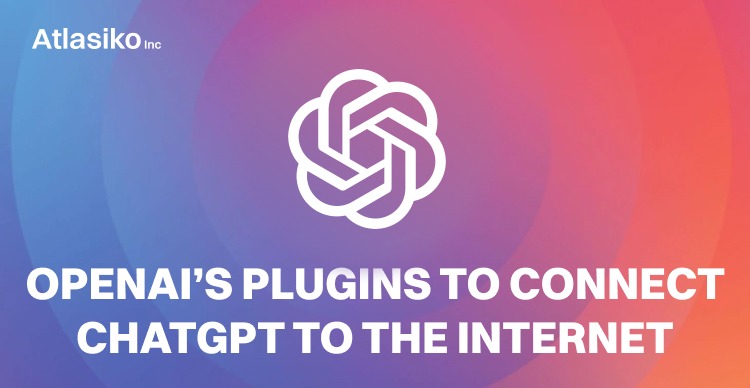ChatGPT, the AI-powered chatbot, is taking the internet by storm. OpenAI has launched plugins for ChatGPT, allowing the bot to access third-party knowledge sources and databases, including the web. With the alpha version now available to ChatGPT users and developers on the waitlist, these plugins are sure to be a game-changer. Besides, OpenAI says that it will firstly prioritize a small amount of developers and subscribers to its Premium ChatGPT Plus plan before launching more extensive and API access.
One of the most exciting plugins is OpenAI’s first-party web-browsing plugin, which enables ChatGPT to withdraw data from around the web to answer multiple questions. This means that ChatGPT’s knowledge is no longer limited to dates, events, and people prior to September 2021. By using the Bing search API, the plugin retrieves content from the web and shows any websites it visited while creating an answer, reproducing its sources in ChatGPT’s responses.
However, having a chatbot with web access is a high-risk situation, as OpenAI’s own scrutiny has found. Just like the AI experimental system WebGPT built in 2021, web-connected ChatGPT might make mistakes such as quoting from unreliable sources and be encouraged to select data from sites it supposes individuals would find convincing, despite their less rank in the searching system.
But fear not, OpenAI has implemented several safeguards to prevent any undesirable behavior such as sending fraudulent and spam emails, bypassing safety restrictions, and increasing the capabilities of bad actors who would defraud, mislead or abuse others.
In addition to the web plugin, OpenAI has also released a code interpreter for ChatGPT, providing the chatbot with a working Python interpreter in a sandboxed, firewalled environment accompanying with disk space. It supports uploading files to ChatGPT and downloading the outcomes. Also, OpenAI says it’s especially useful for explaining mathematical problems, performing data analysis and visualization as well as transforming files between formats.
Expedia, FiscalNote, Instacart, Kayak, Klarna, Milo, OpenTable, Shopify, Slack, Speak, Wolfram, and Zapier are early collaborators who built plugins for ChatGPT in order to be added to OpenAI. These plugins allow ChatGPT to perform a wide range of tasks such as searching for restaurant bookings, placing orders from local stores. It should be added that the most flexible in its efficiency is Zapier plugin. It connects with apps namely Google Sheets, Trello, Gmail to trigger a variety of productivity tasks.
To encourage the creation of new plugins, OpenAI has opened a “retrieval” plugin source that allows ChatGPT to access fragments of documents from data sources including files, notes, emails, or public documentation by requesting queries in natural language. In a blog post, OpenAI wrote “We’re working to develop plugins and bring them to a broader audience. We have a lot to learn, and with the help of everyone, we hope to build something that is both useful and safe.”
Plugins are a remarkable addition to the chronology of events of ChatGPT’s development. With plugins, ChatGPT is much more effective and has less legal risk. Some specialists state that OpenAI is profiting from the unlicensed work on which ChatGPT was trained. Despite that, ChatGPT’s dataset contains numerous common websites. And plugins potentially solve that issue by enabling enterprises to retain full control over their data.
Summing up, with these plugins, ChatGPT will become an even more powerful tool for businesses and individuals alike. The possibilities are endless, and we can’t wait to see what the future holds for this AI-powered chatbot. Our team suggests you take a closer look at the recent news about C3.ai company’s predictions that came to pass.







